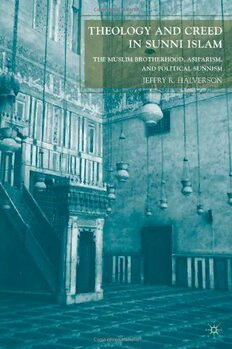
Theology and Creed in Sunni Islam: The Muslim Brotherhood, Ash'arism, and Political Sunnism PDF
197 Pages·2010·1.215 MB·English
Most books are stored in the elastic cloud where traffic is expensive. For this reason, we have a limit on daily download.
Preview Theology and Creed in Sunni Islam: The Muslim Brotherhood, Ash'arism, and Political Sunnism
Description:
The history of Sunni theology (kalam) is little known, but the impact of its demise has profoundly shaped modern Islam. This book explores the correlation between anti-theological thought and the rise of Islamism in the twentieth century. It focuses specifically on Egypt's Muslim Brotherhood and the leadership of Umar al-Tilmisani (d. 1986). In doing so, the sociopolitical implications of anti-theological creedalism and its postcolonial intermarriage with the modern nation-state are analyzed. Ultimately, this study seeks to know whether a revival of Sunni theology, as a rational discourse on religion, can dilute the absolutism of increasingly pervasive Islamist thought in the contemporary Muslim world.
See more
The list of books you might like
Most books are stored in the elastic cloud where traffic is expensive. For this reason, we have a limit on daily download.
